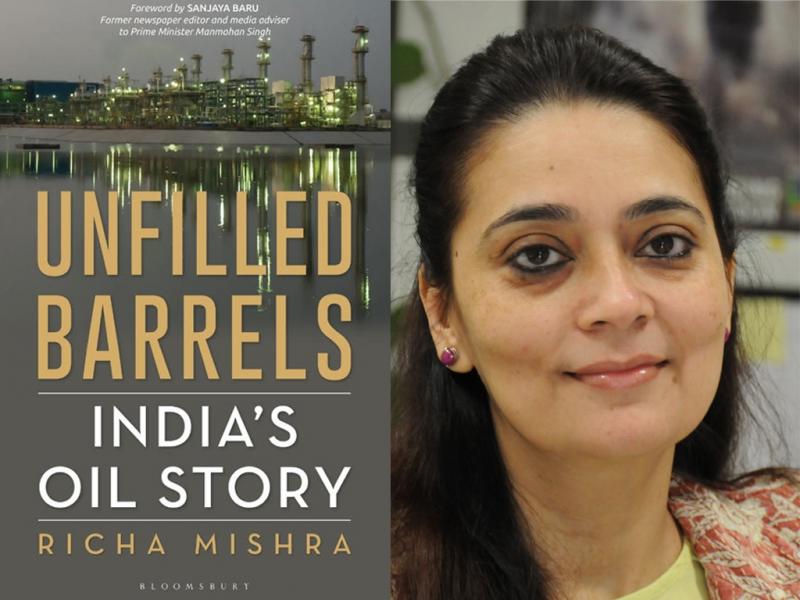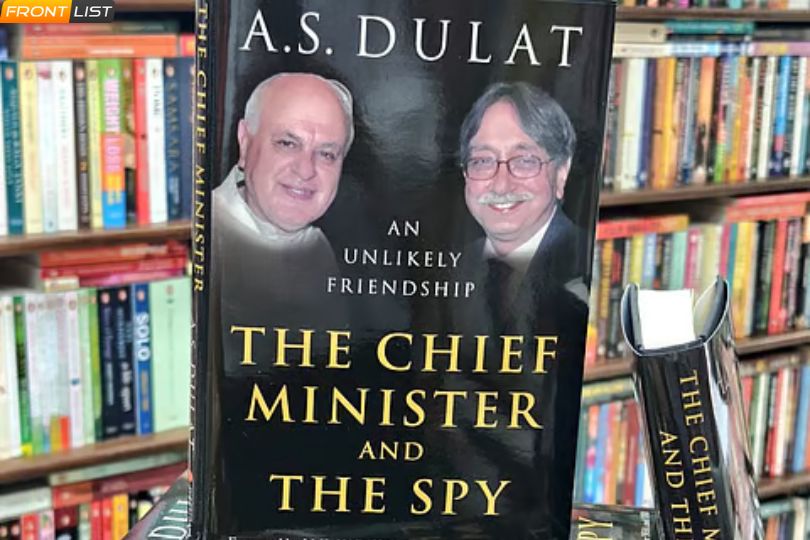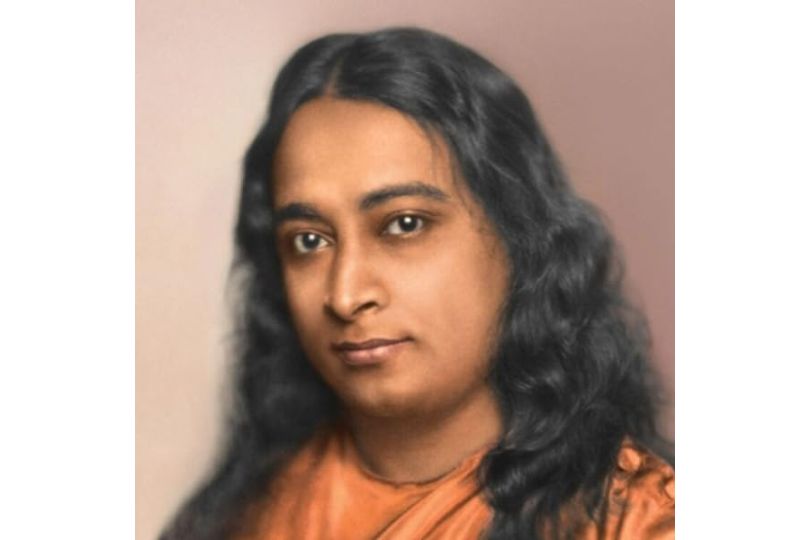Richa Mishra's Interview, Author Of 'Unfilled Barrels: India’s Oil Story'
on Jun 06, 2022

Born in Patna, Richa Mishra completed her education in Chennai and started her professional career as a journalist with the Hindu BusinessLine in 1994. She later moved to Hyderabad (1995-1996) to begin her journey as a reporter. She landed in Delhi in the late 1990s to pursue her true passion of being an oil journalist. Today, nothing is more exciting to her than oil price movements.
Forever a student of life, she has studied English, economics and political science.
Frontlist- How will the ‘Unfilled Barrels’ book be proven as a boon to those who would like to discover the history of India’s fossil fuels and how it fueled the corporate conflict?
Richa- Till now only those who are deep rooted in the sector have had access to anecdotes or stories about India’s journey in finding fossil fuel, with this book I have attempted to present it to everyone in a non-technical way. Oil and gas exploration is the least talked about segment of the sector, despite being the most important component of the industry. Interestingly, the country’s romance with hunting for oil and gas started very early, but risk appetite, politics – both domestic and international – has played a massive role in its journey. It is important to understand the why – though India was not a late mover, but still it lags behind in its production profile and is heavily dependent on imports. What was India’s approach in the 50s and what it is today?
The kind of money and power involved in the sector, corporate conflicts are bound to happen. This is not only restricted to India but globally also this happens. The might which Exxon’s of the world enjoy. India has been no different.
Frontlist- You started off your career as a reporter, and it led you to become an oil journalist. What made you choose the oil and gas sector for your journalism career?
Richa- Yes, I always wanted to be a journalist, but tracking Petroleum & Natural Gas Ministry as a beat happened by default. Prior to deep diving into this sector, I was tracking the Ministry of Corporate Affairs and Finance. It was when the colleague who was tracking the sector earlier moved on, I was nominated to handle it temporarily, when it became permanent I don't know, but it just sucked me in. The challenges the sector throws at you is unlike the rest. As I have always maintained – the sector has politics, commerce, economy and corporate wars – all into one. So, if someone has to evolve as a journalist, they should definitely track this sector.
Frontlist- Politics continues to play an important role in the oil industry's operation. What are your thoughts on this? Are we Indians still battling with the Oil Price Movement, even after 75 years of independence?
Richa- Politics is any business. It is evident more here because whosoever owns oil has the capabilities of playing with the economy. All major wars globally also have happened because of oil and today’s geo-political situation is no different. With one stroke Russia has the capability to plunge many of the European nations into darkness, all it has to do is close the taps for the gas to flow.
We Indians will continue to battle with oil prices, because let us accept this fact that our geology is not rich, if experts are to believe. There are challenges and even if we produce it will not be sufficient to meet our demand. India is and continues to be a consuming nation.
Frontlist- How has Oil Sector Management altered since the late 1990s? Please share your answer on account of your own experience.
Richa- Change can only happen when the focus is more on production, our focus continues to be on the retailing side of the business, as it has direct implications on the vote bank. The focus has to be on exploration and production, as every drop matters.
Every minister initially only focuses on retailing – petrol, diesel, LPG etc. On the policy front, what is needed is consistency which we don’t have.
Frontlist- In 2022, the government plans to cut India's crude oil imports by 10%. What steps is our Indian Minister of Petroleum and Natural Gas, Hardeep Singh Puri, taking to put this into action?
Richa- Steps to reduce output cannot be taken in a day. This target was set by the Prime Minister in his first term, we are nowhere near. What can any minister do? As I said earlier, there is a need to be consistent with policy. We cannot have stuff like retro-tax that had damaged the image and hampered investments.
Frontlist- To reduce hydrocarbon import dependency by 2022, what is the Hydrocarbon Exploration and Licensing Policy (HELP) doing?
Richa- HELP is the latest. We started with Nomination fields, then moved to production sharing contract, then came New Exploration Licensing Policy (NELP), CBM policy, in making Shale gas exploration policy, and then all merged and made into HELP.
HELP is open acreage licensing policy which also offers uniform license to an explorer to hunt for all resources. But, we have to wait for some time to see whether blocks offered under HELP actually yield results.
Frontlist- In your opinion, how do clean fossil fuels play a major role in eradicating poverty in the country?
Richa- Fossil fuel is the feedstock for our daily needs – petrol, diesel, kerosene, LPG, CNG, PNG etc. Can it eradicate policy, not alone. It just will make your living easier, but to reach the targets set by the government, investments in infrastructure will be required.
Studies have been undertaken and numbers put to how it can eradicate poverty, but I have serious issues with the outcomes of these research reports. Yes, I agree that it will create jobs, but all the jobs will be temporary/contractual and not permanent, besides this is a very niche area and requires skilled people.
If a focused capacity building approach is adopted particularly in training and skill development, it will definitely empower the poor.
Then there is also the socio-economic aspect. For example with in May 2016, Ministry of Petroleum and Natural Gas (MOPNG), introduced the ‘Pradhan Mantri Ujjwala Yojana’ (PMUY) as a flagship scheme with an objective to make clean cooking fuel such as LPG available to the rural and deprived households which were otherwise using traditional cooking fuels such as firewood, coal, cow-dung cakes etc. The target under the scheme was to release 8 Crore LPG Connections to the deprived households by March 2020.
On 7th September 2019, Prime Minister Narendra Modi handed over the 8th Crore LPG connection in Aurangabad, Maharashtra. The release of 8 Crore LPG connections under the scheme according to the government has also helped in increasing the LPG coverage from 62% on 1st May 2016 to 99.8% as on 1st April 2021. Under the Union Budget for FY 21-22, provision for release of additional 1 Crore LPG connections under the PMUY scheme has been made. In this phase, special facilities have been given to migrant families. Now, schemes like this on the one hand make life easier for the women, but then what needs to be checked is whether they are going for refills, whether cooking on LPG has become their way of life?
Eradication of poverty cannot be done in silo.



.jpg)






.jpg)

.jpg)

.jpg)
.jpg)

.jpg)










Sorry! No comment found for this post.